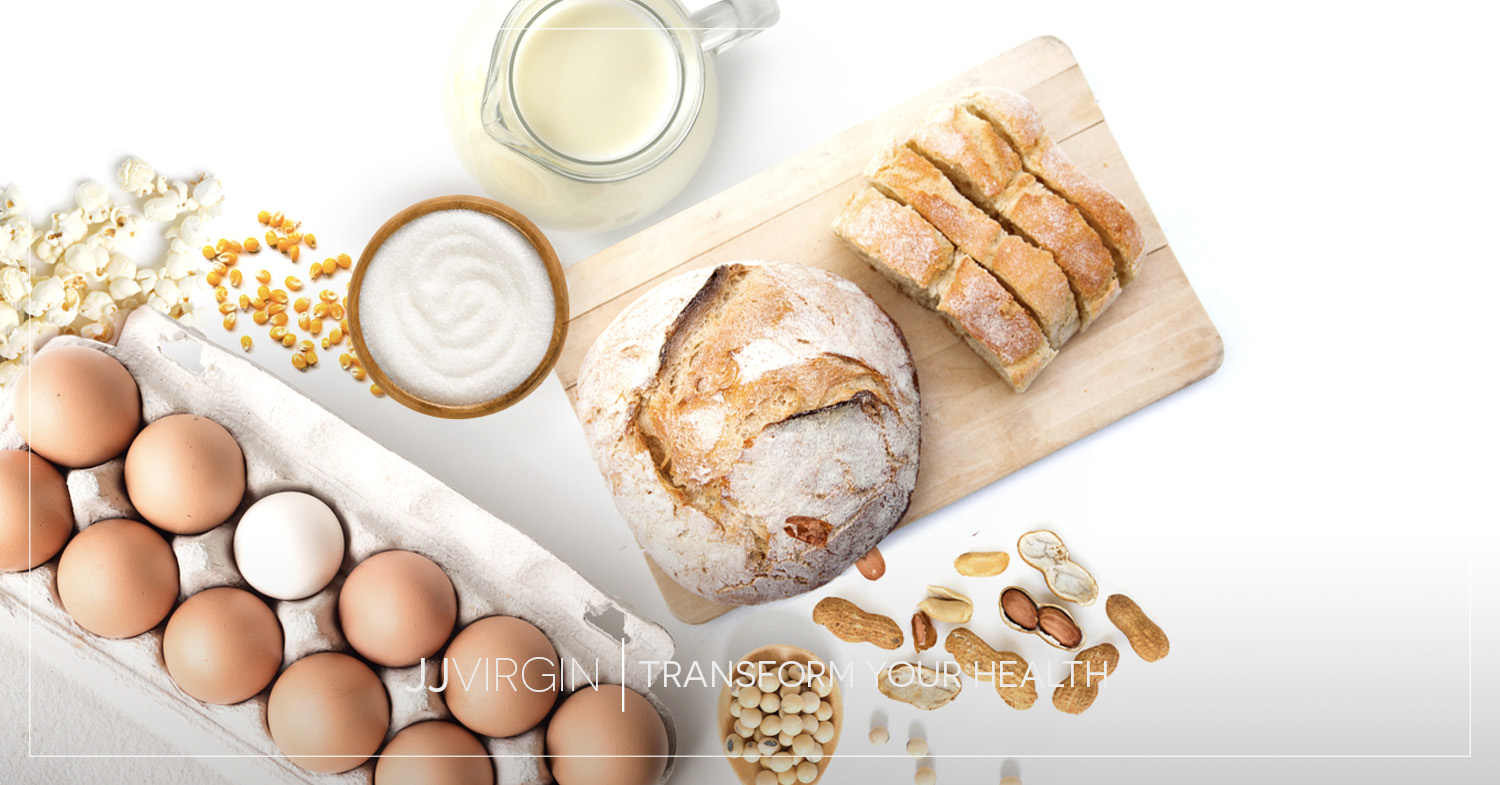You’re been starting your day with an All-In-One Shake, following the golden rules of meal timing, and avoiding inflammatory foods…
Yet when you step on the bathroom scale in the morning, that same pesky number keeps showing up. (And your disappointment isn’t far behind!)
Believe me, I understand your frustration! During my three decades as a celebrity nutrition and fitness expert, I’ve worked with tens of thousands of clients who struggle with what I call “weight loss resistance.”
That’s a term I’ve coined to describe the inability to lose weight despite following a healthy diet.
And when I say “healthy diet,” I’m not referring to typical low-calorie foods like nonfat yogurt, egg whites, and tofu. The truth is that those so-called healthy foods may actually be stalling your progress!
“Where do I start?” I get that question a lot. That’s why it’s so important to have a roadmap you can trust. A roadmap that breaks down your health journey into small, manageable steps. Download my Ultimate Health Roadmap and take control of your health… one step at a time. Get your FREE guide here.
Hidden Causes
So why does “health food” keep you from losing weight? Because food intolerance is so often the cause of extra pounds!
As I explained in The Virgin Diet , a negative reaction to highly reactive foods like dairy or gluten can trigger inflammation and cause a host of nasty symptoms, including stubborn weight gain.
So before you shell out for a gym membership, the first step in overcoming weight loss resistance always starts with what’s at the end of your fork.
Keep in mind that your body will take more time to heal if your metabolism was extremely damaged before starting out. But if you’ve been diligently sticking to the Virgin Diet for at least 8 weeks and your weight loss is still slow or nonexistent, then it’s time to explore what else could be going on.
Read on to find out the 7 most common causes of weight loss resistance, plus how to jumpstart fat-burning again…
1. Thyroid fatigue
As the master gland of metabolism, your thyroid holds the key to burning fat away. Even if you don’t have outright thyroid disease, a sluggish thyroid can slow down your metabolism and hinder weight loss.
Signs and symptoms of low thyroid function include:
- elevated cholesterol levels
- losing the outer third of your eyebrows
- constipation
- feeling cold all the time
- lowered sex drive
- weight gain
If you suspect thyroid issues, be sure to consult an integrative healthcare provider for a deep dive into your thyroid function. (I see Dr. Alan Christianson for my own thyroid health…) And when it comes to thyroid testing, It’s important to look for optimal ranges, not just normal lab values.
2. Insulin and leptin resistance
Leptin and insulin are hormones that are crucial for regulating your appetite and blood sugar levels.
When you’re eating a diet high in sugar and carbs, the more insulin and leptin you make, and the less responsive your cells become to them. (Read this blog to find out more about how that process works.)
Over time, those chronically elevated insulin and leptin levels put you at risk for type 2 diabetes and other serious health issues.1 They also cause your body to store extra fat and tune out the message to curb hunger.2
That’s a double whammy for fast fat loss! The good news is that incorporating burst and resistance training into your schedule, getting good sleep, and adding a high-quality fish oil and vitamin D supplement to your daily routine are all great ways to help restore your insulin and leptin sensitivity.
3. Chronic stress and poor sleep
Long-term stress and lack of sleep can knock hormones like cortisol out of whack, making you feel hungrier and signaling your body to hang on to fat.3,4
And together, the two can form a vicious cycle: high stress can lead to a loss of sleep and going without sleep can increase stress.
Even worse, the consequences will add up around your waistline: studies show that people who only sleep 5 hours per night are 50% more likely to be obese than folks who get a solid 8 hours!5
The big takeaway is clear: if you want to crush cravings and burn fat, it’s essential to get 7-9 hours of quality sleep every night and maintain your sense of calm. Here’s 7 Easy Ways to Fall & Stay Asleep to help!
Tossing and turning or can’t fall asleep? It happens to us all, and it’s never pleasant. Over the years, I’ve developed some simple hacks to get a great night’s sleep so I can be my best self every single day. I want to share those tips with you in my Best Rest Sleep Cheat Sheet. It’s FREE, so you’ve got nothing to lose… and a great night’s sleep to gain. Grab your guide here.
4. Toxicity
We’re exposed to toxins on an everyday basis, in everything from the air we breathe to the foods and drinks we consume. If your body is overburdened with toxins, that toxicity can interfere with your hormones, impair fat metabolism, and create weight gain.6
To give your body the best chance of staying lean, fighting disease, and defending against aging, detox needs to be a way of life. Find out What to Eat When You Want to Detox Safely In a Hurry.
5. Unbalanced gut microbiome
If your healthy gut flora is overpowered by bad bacteria or yeast, big problems can result!
While too much bad bacteria in your gut can cause you to extract more calories from the food you eat and store them as fat, an overgrowth of yeast can trigger carb cravings and lead to weight gain.7
Undoubtedly, maintaining a healthy gut microbiome is critical for lasting weight loss. Eating fermented foods or taking a high-quality probiotic daily are key to maintaining the great gut health necessary for weight loss.
6. Epigenetics
When it comes to weight loss, your genetics may load the gun, but your lifestyle pulls the trigger!
Epigenetics is all about the major role your daily habits play in the way your genes express themselves.
When you optimize your habits, you optimize your health! Meeting your sleep quota, reducing stress, and following a low-sugar impact, anti-inflammatory diet can all go a long way toward staying lean and fit.
(If you’ve ever thought your family history of obesity dooms you to the same, please watch this video…)
7. Sex hormone imbalances
Whether you’re a woman or a man, imbalances in your reproductive hormones can wreak havoc on your weight and your health. The aging process, periods of stress, and an excess intake of hormone-disrupting foods like soy can all throw your hormones off balance.
Some clues that hormones like estrogen, progesterone, testosterone are not working properly include decreased sex drive, difficulty putting on muscle, depression, and lingering PMS symptoms.
If you’re experiencing any of those signs, you should consider working with a functional medicine provider to restore your hormonal balance. (And be sure to check out the diet and lifestyle strategies in my Hormone Health Guide for extra help, available for free at the end of this blog…)
If you’re struggling with weight loss resistance, there is hope! Empowered with the right information, now’s the time to become your own personal health detective and say goodbye to weight loss resistance for good…
The views in this blog by JJ Virgin should never be used as a substitute for professional medical advice. Please work with a healthcare practitioner concerning any medical problem or concern. The information here is not intended to diagnose, treat, or prevent any disease or condition. Statements contained here have not been evaluated by the Food and Drug Administration.
*These statements have not been evaluated by the Food and Drug Administration. This product is not intended to diagnose, treat, cure, or prevent any disease.
References
1 https://www.niddk.nih.gov/health-information/diabetes/overview/what-is-diabetes/prediabetes-insulin-resistance
2 https://www.ncbi.nlm.nih.gov/pmc/articles/PMC1483173/
3 https://www.ncbi.nlm.nih.gov/pmc/articles/PMC2831987/
4 https://www.ncbi.nlm.nih.gov/pubmed/9415946
5 https://www.ncbi.nlm.nih.gov/pmc/articles/PMC2831987/
6 https://www.ncbi.nlm.nih.gov/pmc/articles/PMC3735656/
7 https://www.nature.com/articles/nature05414






